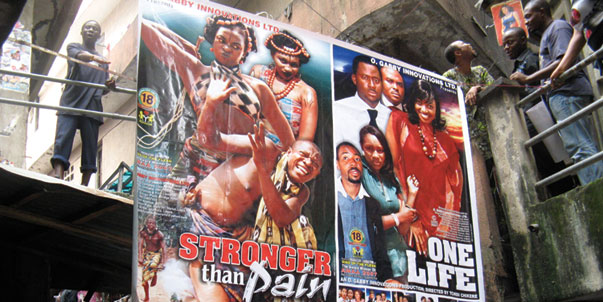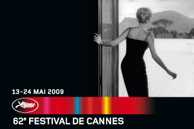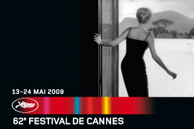The Publisher of Supple magazine will be at the International Film Festival Rotterdam (IFFR).
15 films have been selected for IFFR’s VPRO Tiger Awards Competition 2010.
The nominees are:
Autumn Adagio by Inoue Tsuki (Japan, 2009)
Inoue Tsuki’s début feature film, after her prize winning short fiction The Woman Who Is Beating The Earth, is called Autumn Adagio. Japanese musician and actress Rei Shibakusa plays a middle-aged nun in a drama that deals with salvation, sexuality and identity in the different stages of a woman’s life.
C’est déja l’été by Martijn Maria Smits (The Netherlands/Belgium, 2010)
Talentend young filmmaker Martijn Smits literally makes his way into Dardenne Brothers territory with his début feature C’est déja l’été, a realistic and engaging portrayal of a dysfunctional, lower class family living in Seraing, Belgium.
Agua fría de mar (Cold water of the Sea) by Paz Fábrega (Costa Rica/France/Spain/Netherlands/Mexico, 2010)
Paz Fábrega’s first feature film Agua fría de mar (Cold Water of the Sea) is set on the Pacific coast of Costa Rica during the Christmas holiday season. It is the sensitive and atmospheric story of a young couple and a seven-year old girl with very different social backgrounds.
Let Each One Go Where He May by Ben Russell (USA/Suriname, 2009)
Let Each One Go Where He May is the feature début of Chicago-based filmmaker Ben Russell. The film, portraying contemporary Saramaccan life, traces the journey of two brothers who venture from the outskirts of Paramaribo, Suriname, on land and through rapids, past a Maroon village on the Upper Suriname River. Their journey reflects the voyage undertaken by their ancestors, who escaped from slavery at the hands of the Dutch 300 years earlier.
Mama by Yelena Renard & Nikolay Renard (Russia, 2010)
Yelena and Nikolay Renard, new and promising voices in Russian cinema, made fiction out of the real life story of a complex relationship between an overbearing mother and her obese, forty-year-old son who still lives at home. The filmmakers use a very realistic style in which shots are sometimes turned into tableaux vivants.
Miyoko by Tsubota Yoshifumi (Japan, 2009)
Tsubota Yoshifumi’s Miyoko is a lavishly styled biopic about a Japanese manga-artist, his regularly nude posing muse Miyoko and the bohemian Tokyo neighborhood where they live in the seventies. The young artist obsessively sticks to his girlfriend and the bottle.
Mundane History by Anocha Suwichakornpong (Thailand, 2009)
Scriptwriter and director Anocha Suwichakornpong’s short film Graceland (2006) became the first Thai short film to be included in the Official Selection at Cannes Film Festival. Her feature film début Mundane History is a family drama about a paralyzed son, an elusive father and the male nurse hired to take care of the wheelchair-bound patient. Suwichakornpong’s second feature project By the Time It Gets Dark is selected for CineMart 2010.
My Daughter by Charlotte Lay Kuen Lim (Malaysia, 2009)
Charlotte Lay Kuen Lim worked for numerous TV commercials after completing her studies in broadcasting and was an assistant director for various films. She directed several short films, such as Escape (2008), screened at IFFR 2009. Her feature film début My Daughter is an intimate study of the mutual dependence between a slovenly hairdresser and her insecure teenage daughter.
R by Michael Noer & Tobias Lindholm (Denmark, 2010)
R is Lindholm & Noer’s first feature film about young Rune who tries to survive in a Danish prison. A gripping, hard hitting film that portrays the prison world with its strict hierarchy, codes of honor and mysterious contracts.
Les signes vitaux (Vital Signs) by Sophie Deraspe (Canada, 2009)
A young Canadian woman wants to know what people really need in the last moments of their lives. In a restrained way, without any false sentimentality, Sophie Deraspe’s film evokes grand questions about the things that are important in life and the strange intimacy between caregivers and the dying.
Street Days by Levan Koguashvili (Georgia, 2010)
Sober Georgian drama about Checkie, a jobless and penniless junkie, is a reflection of a generation who were around the age of twenty when the Soviet Union fell, brought up in the soviet style, and incapable of adapting to all the socio-political and economical changes. They are now in their late thirties and early forties and referred to as the lost generation.
Sun Spots by Yang Heng (Hong Kong/China, 2009)
Three years after his award winning début feature Betelnut, Yang Heng presents Sun Spots, minimalistic Chinese cinema that combines beautiful HD imagery with the story of a tragic relationship between a young gangster and a girl disappointed in love.
The Temptation of St. Tony by Veiko Õunpuu (Estonia/Sweden/Finland, 2009)
After winning the Horizon Award 2007 at the Venice Film Festival for his début feature Autumn Ball, Estonian filmmaker Veiko Õunpuu now returns with his second feature The Temptation of St. Tony, a parable on the new, wolf like capitalism in Eastern Europe with its compassionless capitalist rules and rulers. Shot in beautiful black and white, Õunpuu’s vision is provocative and dark, but also very diverting with his use of black comedy.
Alamar (To the Sea) by Pedro Gonzalez-Rubio (Mexico, 2009), European premiere
Alamar delicately portrays the relationship between a father and son spending a summer on Chinchorro reef on the Mexican-Caribbean coast, where the father is a fisherman. The second feature film by Pedro Gonzalez-Rubio was produced by Jaime Romandia for Mantarraya Producciones that previously produced films by Carlos Reygadas and Amat Escalante.
La vie au Ranch by Sophie Letourneur (France, 2009)
In her début feature La vie au ranch, Sophie Letourneur portrays with great insight the seemingly quite happy daily life of a small group of twenty-year-old female students living together in what they call their ‘Ranch’. Their lives are about to be confronted with the sharper edges of reality and relationships.
© 2010 International Film Festival Rotterdam
Related News:
Berlinale International Jury headed by Werner Herzog
Sundance Begins With A Howl
Tim Burton is to be Jury President for Cannes
Open letter from Paul Haggis in Port au Prince, Haiti
Phillip Seymour Hoffman debuted as a feature film director in Sundance
Morgan Freeman, Julia Roberts, Meryl Streep… to support Haiti victims
Official Reception for the Goya Nominees
David Minnihan’s pitch of Father John awarded by AFM 09
Aruba to host a new international film festival next june
The official nominations for the Orange British Academy Film Awards in 2010
The Future of Film: Intercontinental connections at Berlinale Talent Campus
The Return of James Ivory
Rotterdam Lab welcomes 67 producers for tenth anniversary edition
2010 Oscars: Been There, Done That Thanks to Golden Globes
24th Annual Goya Awards
New York Sephardic Jewish Film Festival Lineup
Fantasporto 30: programme released
2010 Cinema Eye Honorees
An Interview with Jeff Bridges
Rotterdam announces 2010 Competition lineup




